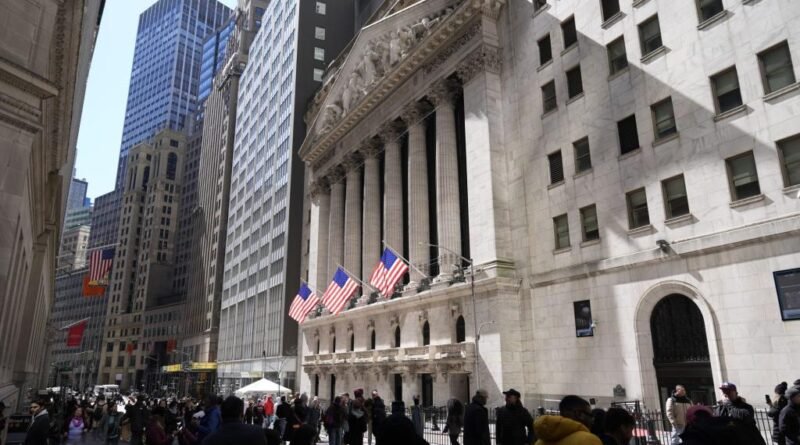As New York lawmakers strain the budget, Wall Street’s cash cow is seeking greener pastures

As the State Legislature moves past the April 1 deadline for passing a $233 billion budget for fiscal year 2025, disagreements persist over non-spending issues like housing and whether to add more spending.
One crucial question that seems to be overlooked is: Where does the money come from?
This is a significant concern because New York’s main revenue source, Wall Street, has been facing challenges.
The securities industry, which deals with issuing, trading stocks and bonds, and providing advice on mergers, has experienced a decline in profits in recent years.
Although nationwide pre-tax profits hit record levels a few years back, reaching $58.4 billion in 2021, they decreased to $26.6 billion in 2022 as the Federal Reserve began raising interest rates. Profits remained flat last year, according to reports from the Securities Industry and Financial Markets Association.
The decrease in profits has also affected high-paid workers in New York, with bonuses falling as well. Bonuses in the city for 2023 were estimated at $33.8 billion, which is 21% lower than the record $42.7 billion in 2021.
These numbers are crucial because Wall Street plays a significant role in the city and state budget. During the pandemic, federal aid and substantial revenues from Wall Street prevented the need for spending cuts.
Although Wall Street makes up a small fraction of state and city jobs, the industry’s high salaries and bonuses, along with New York’s high taxes, contribute significantly to tax revenues.
In fiscal year 2023, the state collected $28.8 billion in tax revenues from Wall Street, representing 27.4% of state taxes. In the same year, the city received $6.4 billion in taxes from Wall Street, making up 9.3% of total taxes.
However, these tax revenues are decreasing, leading to deficits in the city’s budget. The city estimates a 7% decrease in personal-income tax and related revenues, while the state reports an 11% decline in personal-income taxes.
Despite expectations of a quick recovery in tax revenues, projections may be optimistic. The securities industry in New York shed jobs last year, with 5,200 positions disappearing in the city.
While these trends may not be alarming by themselves, the industry’s growth is predominantly happening outside New York, with other states gaining more jobs in the past decade.
Lawmakers and the governor should address these trends and consider restructuring rates to retain higher-income individuals, instead of blindly proceeding with increasing spending.
Nicole Gelinas is a contributing editor to the Manhattan Institute’s City Journal.



